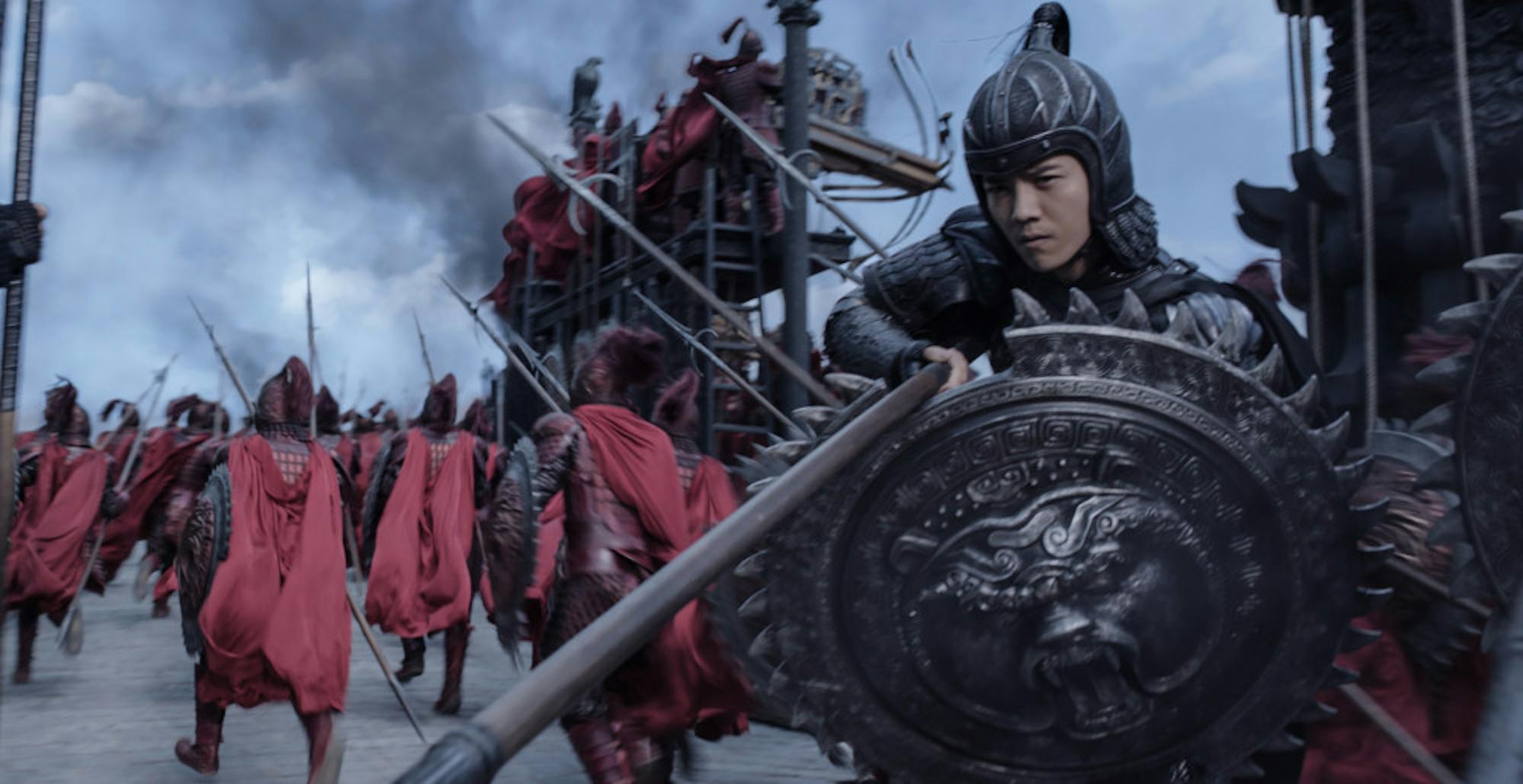“The Great Wall" (2016) -- released Dec. 15, 2016 in China and Feb. 17, 2017 in the United States -- blends bits of Chinese history and mythology with good old American heroism to create, if nothing else, an entertaining action movie. It all begins with two European mercenaries named William Garin (Matt Damon) and Pero Tovar (Pedro Pascal), who have traveled to China in search for explosive “black powder” to aid them in battle.They hit the Great Wall and are captured by soldiers of the Nameless Order, led by General Shao (Zhang Hanyu) and his protegee Commander Lin Mae (Jing Tian), but the soldiers are busy expecting the incoming threat of the Tao Tei, large reptilian monsters that attempt to breach the Wall and lay siege on all of China. William and Lin take a liking to each other, but as the danger of total oblivion becomes imminent, William is faced with the choice of escaping or staying to fight.
The real strength of this movie lies in its aesthetics, particularly in its battle and battle preparation scenes. Upon hearing that the Tao Tei are coming, hundreds of soldiers mobilize into color-coded brigades with spears, axes and spiked shields. They raise massive crossbows over the edge of the wall and attach ropes to the all-female Crane Corps, who jump down the Wall with double-ended spears to fight the Tao Tei and then get yanked back up. Low, dramatic drum beats signal short-range combat and long-range flaming cannonballs as needed. The battle scenes offer all the explosions an action lover would want, thanks to the black powder, but the rest of the warfare is also exceptionally engaging. The Tao Tei would seem an odd choice for a made-up Chinese monster, except they are actually based on the taotie, zoomorphic faces found on bronze vessels from the Shang dynasty, when "The Great Wall" is set. The meaning and role of the taotie in Chinese mythology is unclear, but showing the potential horror of this mysterious iconography is a creative choice. And when General Shao is killed early on in the film, the constant fighting and scrambling takes a break for a breathtaking funerary scene, in which the soldiers sing mournful dirges, accompanied by those same drums, and release hundreds of paper lanterns into the night.
Upon hearing the storyline of “The Great Wall,” one clear worry is that the movie will devolve into a ‘white savior’ narrative. Fortunately, the film more or less manages to escape it. The interactions between William and the Chinese defense, especially Lin, form a continuous back-and-forth of education and advice instead of consistent teacher and student roles. The practical lessons are typically granted by William and the philosophical lessons by Lin, but while that isn’t necessarily a bad thing, William’s constant heroism and starring role in the Chinese army can be cringeworthy. William’s most significant contribution is harpooning the Tao Tei with whaling practices he’s seen in Spain, while Lin’s most important lesson for William is the value of trust. But the film does not show preference for either; it was, after all, directed by the native Chinese Zhang Yimou and released by the studio China Film Group Corporation in conjunction with Universal Pictures in the United States. Nevertheless, it is impossible to ignore the fact that the two leads in a film about the Great Wall of China are white men.
Movies have never existed in a bubble or remained indifferent to their times and “The Great Wall” is no exception. A significant part of President Donald Trump’s campaign platform focused on the growing threat of China, and even a willingness to go to war with that country.This film, by contrast, centers on a story of Westerners and Chinese learning from one another to defeat a common enemy. That common enemy may be lizard creatures, but in this movie it originated from a meteor that crashed thousands of years ago to punish the emperor for abusing his power. Now, as the Wall’s strategist Wang explains, they come back every 60 years to “remind us of what remains when greed is not checked.” It’s an appropriate and noble message to send, even if it is mostly hidden by stylized fight scenes and sexual tension between William and Lin.
The major problem with “The Great Wall," however, is that its image of an epic, legendary tale is never resolved. The film begins with onscreen text explaining its mythic origin and the mythic nature of the tales that are about to unfold. But why begin a movie by emphasizing its role as a great mythic tale and then end it without showing the implications of this story in the future? Nevertheless, overall, "The Great Wall" is a good choice for an amusing action movie with some heart.






